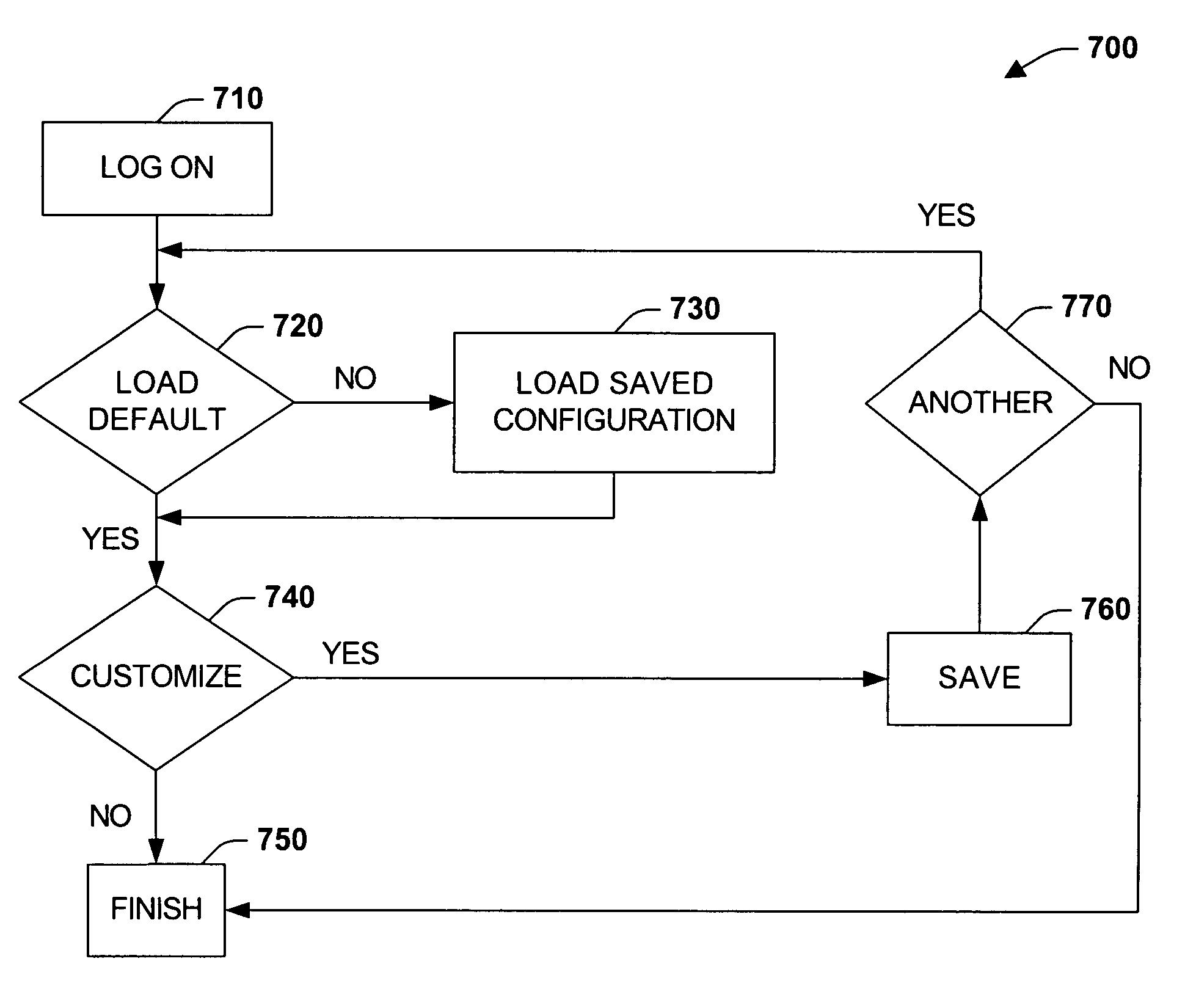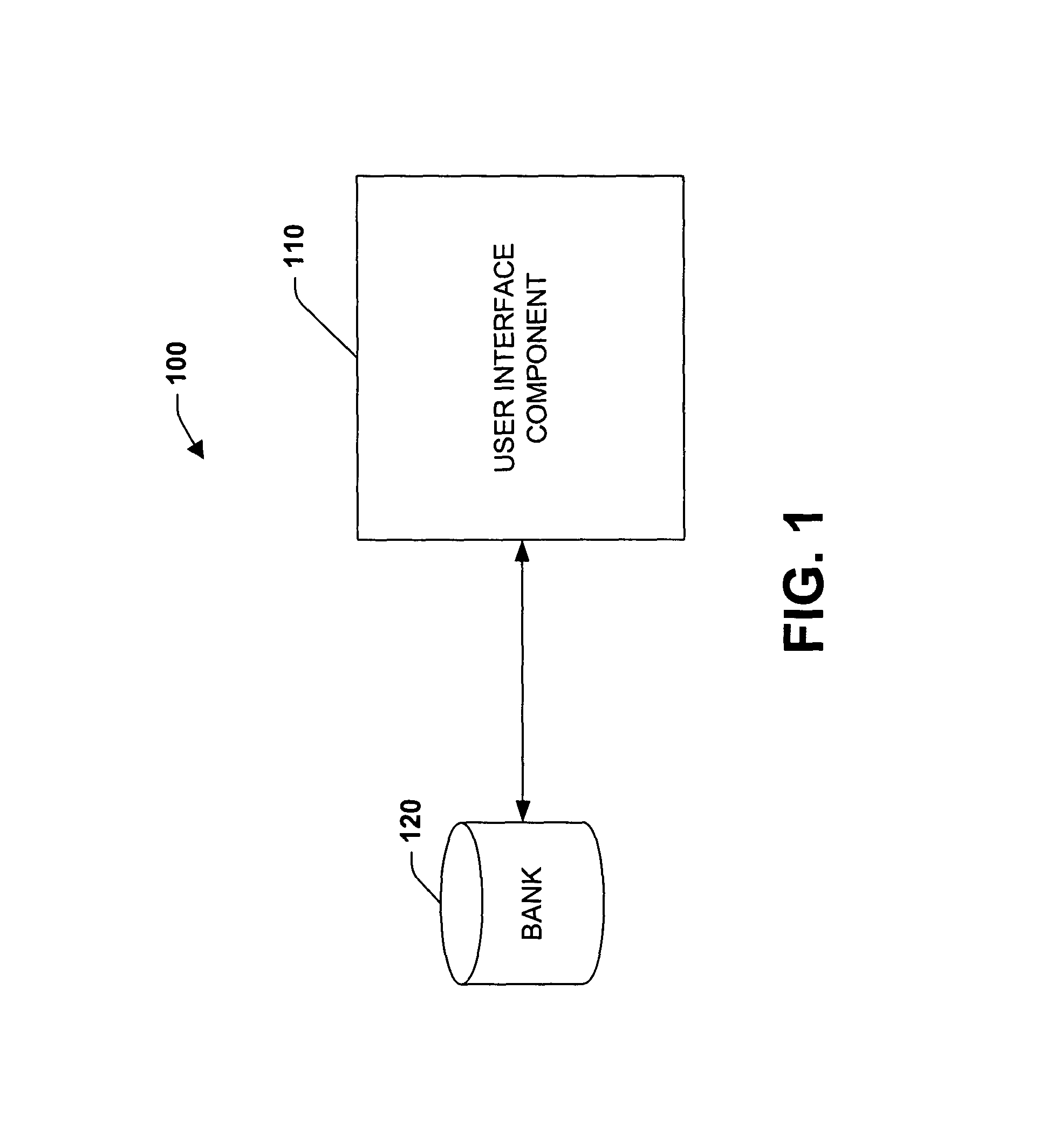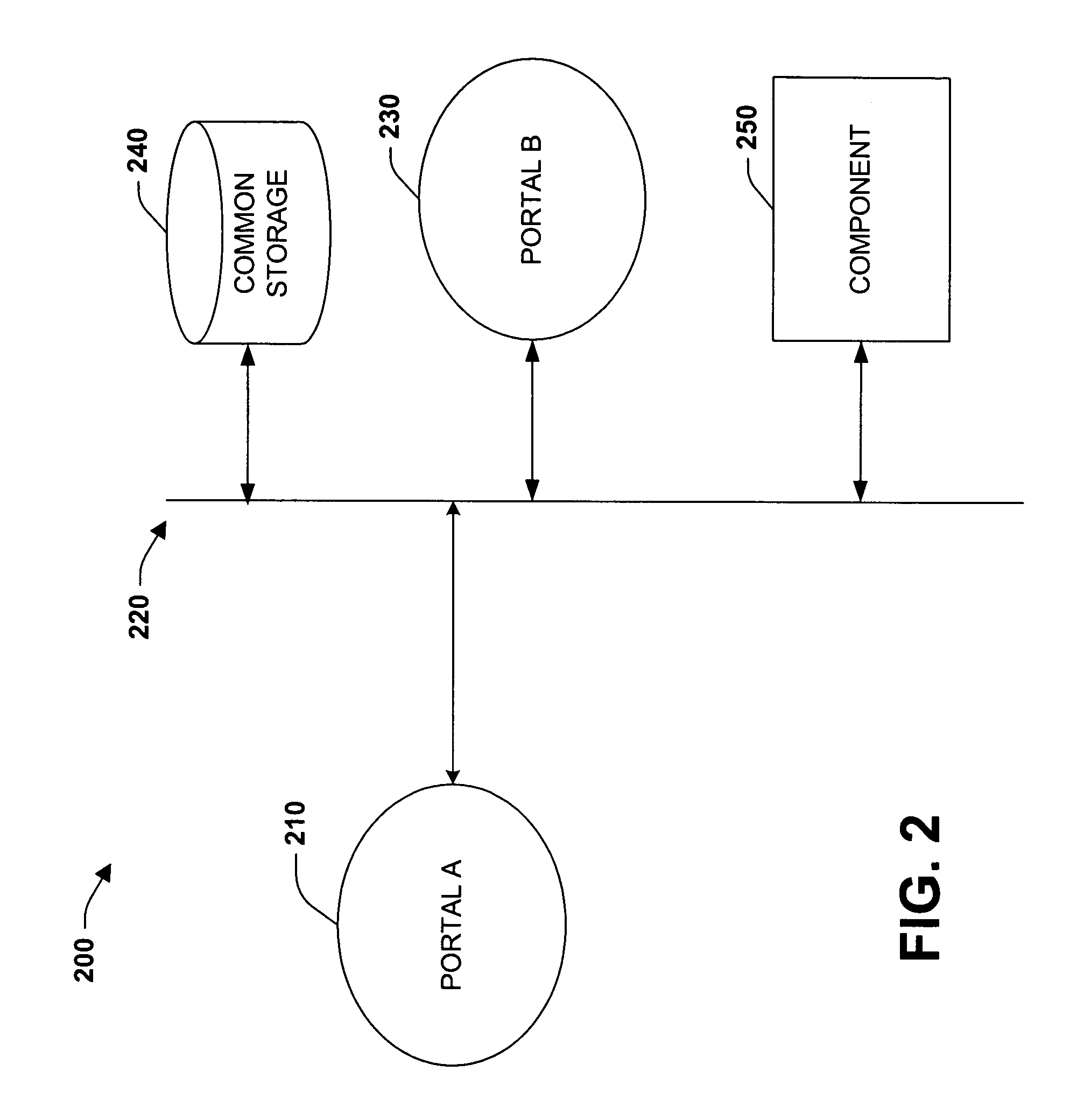Systems and methods for sharing portal configurations
a technology of portal configuration and system configuration, applied in the field of industrial control systems, can solve problems such as insufficient or optimal delineation of the contour, introduce security issues, etc., and achieve the effect of facilitating determining and/or extracting, and facilitating developmen
- Summary
- Abstract
- Description
- Claims
- Application Information
AI Technical Summary
Benefits of technology
Problems solved by technology
Method used
Image
Examples
Embodiment Construction
[0034]The present invention relates to systems and methods that provide a sharable portal configuration, wherein users can employ the configuration to gain selective access to components in an industrial environment. Generally, the user employs the portal with a plurality of portlets, wherein respective portlets provide windows of selective access to one or more components within the scope of the user. For example, an electrician utilizing a portal of the present invention can customize the portal via adding portlets and associating components with the portlets. Typically, the electrician selects components from a group (subset) of components related to the electrician's functional role. Sharable configurations can be stored local to the user's portal, local to another portal and / or within a networked storage medium. Typically, users with similar roles can instantiate instances of a portal configuration associated with the role. The configuration commonly invokes instantiation of a ...
PUM
 Login to View More
Login to View More Abstract
Description
Claims
Application Information
 Login to View More
Login to View More - R&D
- Intellectual Property
- Life Sciences
- Materials
- Tech Scout
- Unparalleled Data Quality
- Higher Quality Content
- 60% Fewer Hallucinations
Browse by: Latest US Patents, China's latest patents, Technical Efficacy Thesaurus, Application Domain, Technology Topic, Popular Technical Reports.
© 2025 PatSnap. All rights reserved.Legal|Privacy policy|Modern Slavery Act Transparency Statement|Sitemap|About US| Contact US: help@patsnap.com



